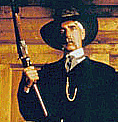Saturday, July 02, 2005
Interesting thought on public broadcasting
Maybe public broadcasting is not an idea whose time has come. Maybe it is an idea whose time has gone. Jeff Jacoby thinks so.
I have listened to public radio as long as it has been on the air and some truly worthwhile programming has come to light there. A Prairie Home Companion, The Folk Sampler, Below the Salt from Ohio Public Radio, and naturally, Mountain Stage are my favorites. Much as I like the programming, I have to agree that there is no real reason to spend public money for quality broadcasting when plenty is being produced in the private sector.
Last week the House of Representatives restored $100 million that the Appropriations Committee had cut from the Corporation for Public Broadcasting's federal subsidy. Too bad: the CPB allowance should be cut, particularly when the federal budget is so badly out of balance.
But despite the argument made by some Republicans, the reason to defund ''public'' television is not its liberal political bias. It is that it has no legitimate claim on taxpayer dollars. Maybe it did back when public broadcasting was a lone oasis in a vast wasteland of mediocrity, but that is no longer the case. Thanks to cable, satellites, and the Internet, viewers now have access to an incredible array of offerings, much of it of very high quality. From ESPN to A&E to The Learning Channel, today's private broadcasters more than fill the need it was once said only public broadcasting could meet. They manage without a federal handout. Big Bird can, too.
I have listened to public radio as long as it has been on the air and some truly worthwhile programming has come to light there. A Prairie Home Companion, The Folk Sampler, Below the Salt from Ohio Public Radio, and naturally, Mountain Stage are my favorites. Much as I like the programming, I have to agree that there is no real reason to spend public money for quality broadcasting when plenty is being produced in the private sector.
Mr. Keillor is feeling better.
I remarked in the past about a brief moment of apparent disorientation in Garrison Keillor's life and it is to my sincere pleasure that he is apparently back to his old self. The warmth and pleasures of the summer have brought back the old optimism. It seems to be related to strawberries and sweet corn. I can understand that. Long days, sunshine and fresh produce make everybody feel better. There is too, for the thoughtful, the sobering lesson of the grasshopper and the ant. There is more to the year than summer and for that reason we should enjoy it even more. The knowledge that winter comes only makes the enjoyment of summer more urgent.
Summer gets people outside for flea markets, county fairs and picnics. You see people up close.
The honeybees are enjoying their six weeks of life until their wings wear out and they drop dead, and we humans feel the transitory nature of life, too. Summer is brief up here in St. Paul. Fresh sweet corn has a short season. You boil up a few ears and you say, "G-d is great and G-d is good. And we thank him for this food. Let this meal to us be blest. And now I think I'll skip the rest. Let's eat. Amen." And you slather the corn with butter and salt it and eat it blissfully, row by row, left to right, hit carriage return, next line. And you think that this is the first of many corn feasts.
But it isn't. You're busy. Events press on you. The weeks pass and suddenly it's September and corn is over for the year and those ears are all you'll get. This happens again and again in life. Your friends sit in your back yard one night drinking beer and singing old songs, and you say, "Let's do this again sometime." And you never do. You promise yourself you're going to return to that great stretch of river in Montana and it doesn't happen.
Summer gets people outside for flea markets, county fairs and picnics. You see people up close.
On the Fourth, the adoption of Mr. Jefferson's little peroration against the King, you sit in the shade and think of America at its best, a generous and redemptive land, an amiable people. A nation of optimistic sentimental humorists. Europeans can be shocked at how instantly friendly we can be with people we don't know. We meet strangers over a cup of coffee and suddenly we're telling about the crazy uncle who ran off with the church secretary. We rally to help people we never met. Amiability is the basis of civil politics: You don't cheat people you like, you don't abuse people who might become your friends.There are still people worth meeting out there and things worth doing, even if it's no more than sitting on the porch watching the squirrels.
